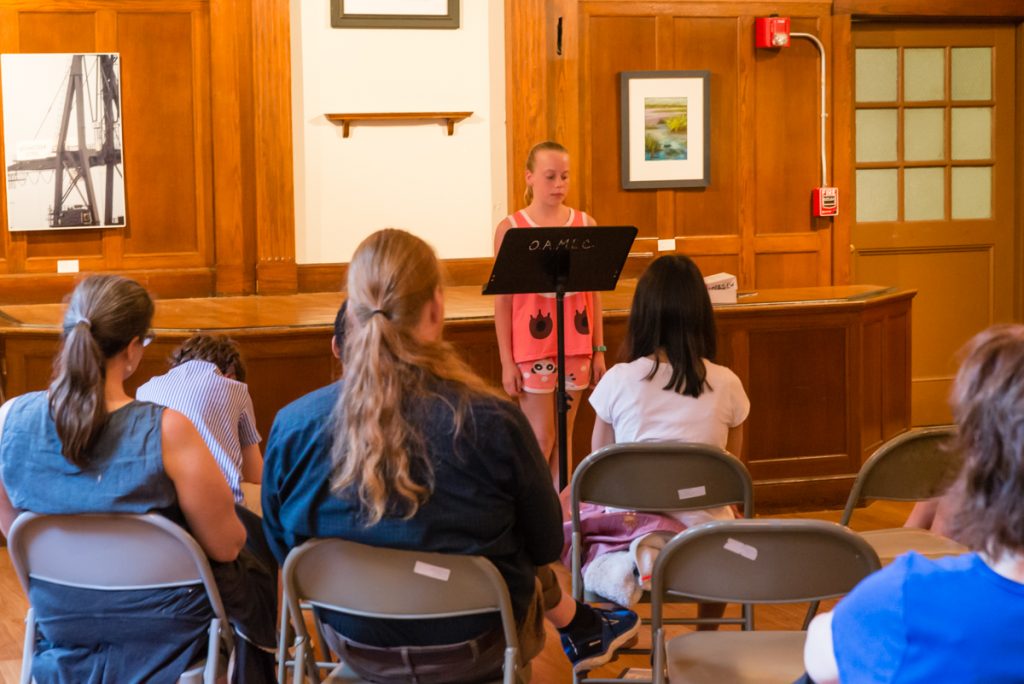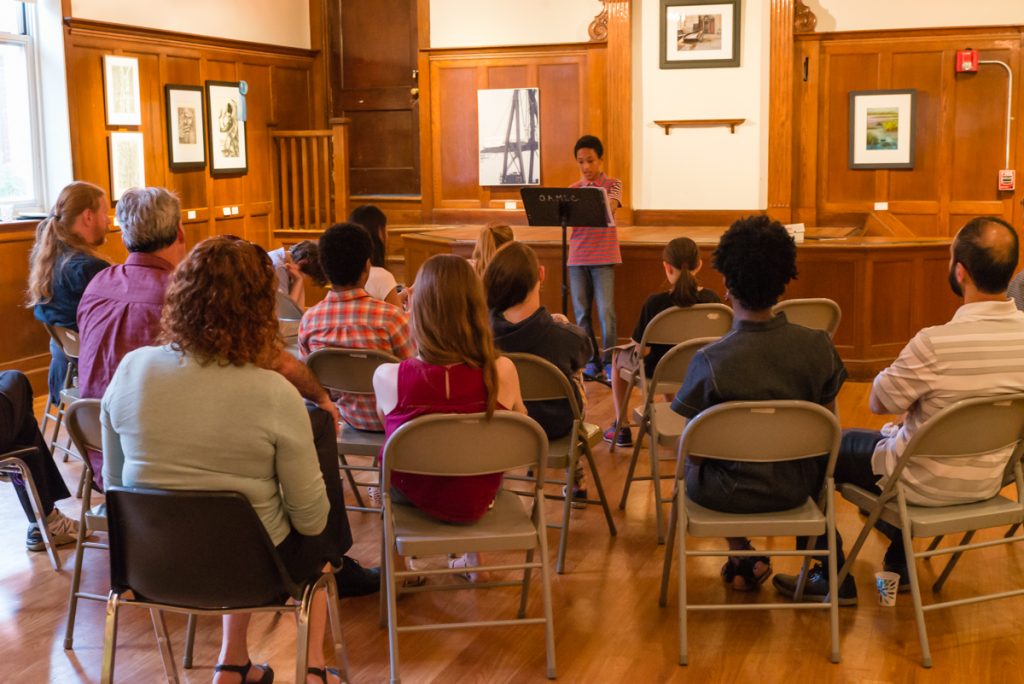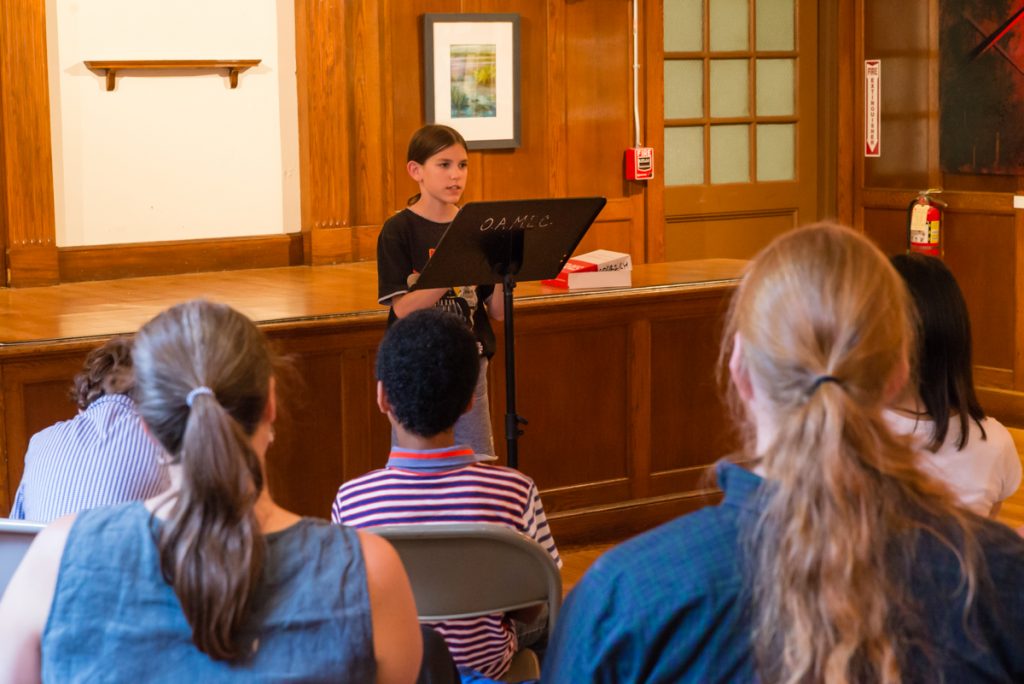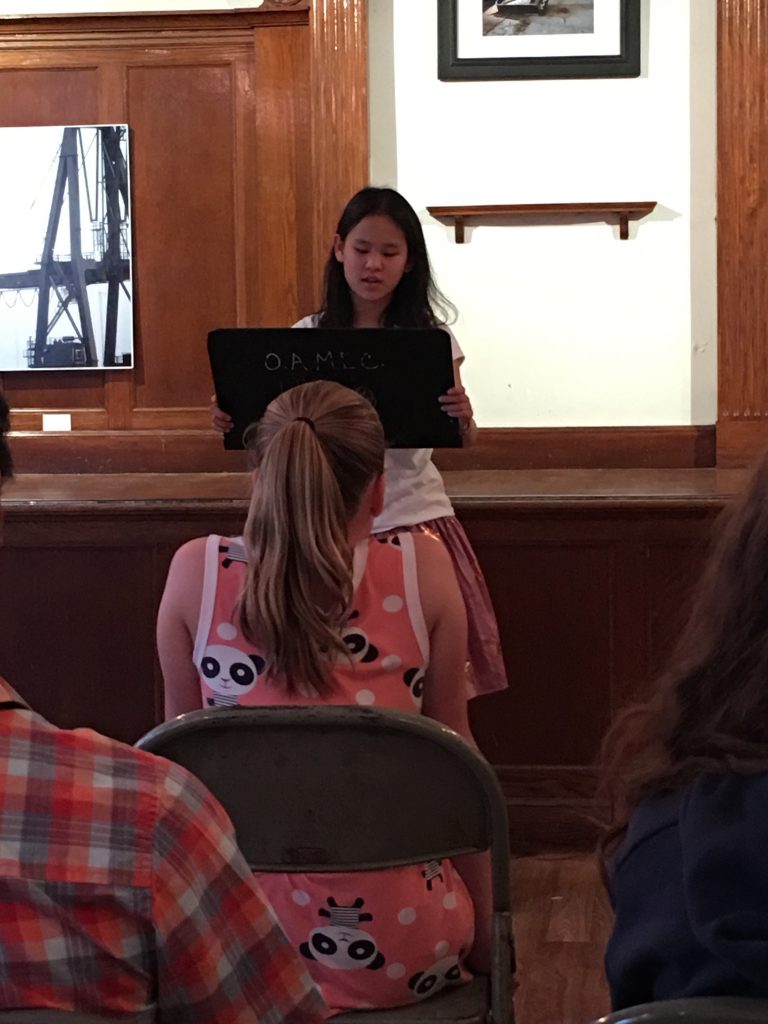

















Home Scholars of Boston poetry class has been very busy.













We have been having fun in homeschool drama class. Each week, the students do physical and vocal warmups, learn new theater games and create scenes based on a weekly theme.









Pictures from our writing workshops in the arboretum. Beautiful days. Beautiful Poetry.































It was a warmish, sunny spring day when I went to see my mentee for our next reading session. I was in a hopeful mood. It was one of those days in New England that felt almost like spring, despite April snow.
The moment I stepped into the school, I heard yelling. One female student was chasing a male student. There was a teacher’s voice coming from behind the corner in the hallway. The girl looked to be no more than a fifth grader. She grabbed the boy and immediately began punching him violently and screaming at him. The boy did not do much more than attempt to shield himself from her blows. By the time I reached where they were, several teachers had caught up to them and were dealing with the matter. I was signaled to continue to the lunchroom to meet my student.
As we walked out of the lunchroom, a large, middle-aged man was standing in the middle of the cafeteria, yelling at the students for their inappropriate behavior. This is something that seems to happen fairly regularly. I asked my mentee about it and she told me that sometimes the students are wild and, in her opinion, they don’t calm down and “act right” until someone yells at them. I have heard the students threatened that if they did not behave they would have silent lunch. I wonder to myself how often violence occurs at this school. I wonder if my mentee feels safe there.
I recently introduced my student to poetry. I had taken one of the huge binders of poems out of my bag during one of our sessions. She stared in amazement and said, “I can’t believe you have so many poems in there! Are they all different?”
She wanted to know if I knew them all and what were my favorites when I was her age. I recited from memory Langston Hughes’ poem Dreams and his poem Harlem (Dream Deferred)
Or does it explode?
We talked about the Harlem Renessaince, what was happening during that time in history and what it might have been like to live in Harlem then.
We read Claude McKay’s, The Tropics of New York. I got out my phone and showed her the animated version of the poem featured on the National Poetry Foundation website. She loved it. I challenged her to write a dream poem using some of the techniques we saw in the Hughes and McKay poems. I saw a mixture of excitement and doubt. She got out her pencil and started to write. “Remember your five senses,” I said. She wrote for several minutes and then pushed her paper towards me, watching me in silence.
Her poem was a dream-poem about the Dominican Republic. She told me her parents were from there and she knew they missed it very much. She remembered being there when she was younger. In her poem, she described a vivid beach scene.
She left our session with a smile on her face. I was aware that I had veered completely away from the stated purpose of the mentoring program: reading a book aloud to your student. I would need to check with the organizers to ensure that a poetry focus.
Vocabulary Building
Most of my students love words. I encourage them to keep a list of words they love, not just for the meaning, but for the sound of the word itself or for the feeling they have when they speak or hear the word.
I am a firm believer in ten new words a week. This is an old-fashioned idea and I believe the reason it has persisted long enough to become old fashioned is because it is tried and true. In other words, it works.
When homeschooling my own daughter, I assigned ten new vocabulary words each week. I had her look them up in a dictionary (the actual book, not the online tool). She would then write out each definition. She would memorize the spelling and definition of each word. The next night she would write three sentences using each word and by the end of the week, she would write a short story or poem using each vocabulary word. Each week, I would create a test on spelling, meaning, and usage. I found this to be an excellent way to help her build her vocabulary. Why not try this with your child?
In addition, I highly recommend Wordly Wise books and online tools. http://www.wordlywise3000.com/
A few weeks ago my mentee hid from me among her friends in the cafeteria, when I arrived to meet with her for our session. I walked to the table where she was being shielded by two other girls. One girl had a friendly smile and asked if she could come to the session. Despite the fact that she was sitting, I could tell that the third girl was quite tall. Her knees hit the top of the lunch table and even sitting, she towered over the other girls. She was tough looking and glared at me angrily.
“Good afternoon, girls,” I said. “I am sorry, but I have to borrow your friend for a while today.”
“Why? So you can torture her with that boring reading stuff?” The tall girl asked, still glaring. “She hates going, you know.”
“I did not know that, but she is committed through June, as am I,” I said motioning towards my student. “We need to go.”
My mentee had turned an astonishing shade of pink. She would not meet my eyes. “Can they come, too?’ She asked. In this moment, I was trying to figure out if my student really didn’t like our sessions, if she resented missing one lunch a week with her friends, if she felt embarrassed to be called out for special services, or if she truly wanted her friends to be able to also participate in the program.
The tall girl immediately said, “I never want to go, don’t worry.” She looked me up and down from head to toe, pausing at my shoes and then at my neck in that unnerving way that some middle school girls seem to have mastered. It’s a way of letting you know there are insults to be made, but can’t be, lest the girl making the insults would be given detention or some other consequence they’d like to avoid.
I knew that I had some choices. I could walk away, find a teacher or some administrator to help me deal with the problem. I could get tough. I could ignore the tall girl completely and insist my student get up from the table and join me immediately.
I knew full well that the choice I was about to make could have very differing results, but I decided to take a chance. I fixed my gaze on the tall girl. I sensed she needed attention. I looked her directly in the eyes with what I hoped appeared to be a congenial smile and said, “You look really tall. Just like I am. Just like my daughter. She’s about up to here.” I motioned towards the top of my head. “You’re tough, too, just like she is. You must play sports. Basketball, soccer, swimming… tennis! You’d be a powerhouse at tennis.”
This seemed to please her and she gave a tiny little smile. I told the girls that this mentoring project was a new program that we were trying to grow and that next year there would be more mentors so that more students could participate. My student got up from the table and we walked towards the classroom that we usually meet in.
“So tell me, and I want you to be honest, because I want these sessions to work for you and I had been under the impression that we were having a good time. Do you not like the work we are doing together?” I asked.
She told me that it was embarrassing and that some of her friends laughed at her for going. I told her that I understood and that even though it was at the time of the cavemen, I remembered being eleven years old. (Yes, I make bad jokes sometimes, so my students will laugh.. with me or at me. I don’t care which.) I reminded her that she had been specifically chosen to be in this program by her teachers and that not all the students who applied could participate. She was quiet and when we got into the classroom, I asked her where she would be going to school next year.
“Here, I guess. I took the test for the special schools, but I didn’t get into any of them,” she said this with sadness in her voice.
I told her I was sorry to hear that and she immediately said that it was the hardest test she had ever taken. She said there was math on the test that she had never seen in her life. I know exactly what she meant because my own daughter, who is a year older than my student, is now a seventh grader at Boston Latin School and we started the preparation for the ISEE test in 5th grade. I asked her if she had received any tutoring for the test and she said she had not. It saddened me greatly when I heard her then say the following words:
“I guess I’m just not that smart. You’d have to be really smart to pass that test.”
This exam school test taking process had brought an eleven-year-old kid to the conclusion that she is not intelligent. From my work with her thus far I could tell that this was, in fact, untrue. I had a seen a paper she had written for her English class comparing two different books. There were red marks and comments on it. When I mentioned to her it would be important for her to follow the teacher’s advice and edit her paper, she corrected me and said, “Oh no, no, no. Those are my own comments. I always write a draft and then make edits.”
From this paper, I could see she was reading and writing at a high level. In fact, I was told that she had been recommended for the mentoring project because she was advanced and needed to be challenged. Our work together started in the spring after she had already taken the ISEE prior to our first meeting. Therefore, I had not had the opportunity to help her advise her on howr prepare for the test. I wondered to myself if her parents had received any information from the school on how to prepare for the test.
“You are very smart. That test is far above your grade level, especially in math. Most of the students who get into those schools, get private tutoring specifically for taking that test,” I said looking in her eyes.
I wanted to be careful. I couldn’t let her continue to think that her results on that one test meant that she was not intelligent. At the same time, I didn’t want her to feel that the cards were stacked against her, that she was competing in a system that she did not have the resources to be successful in or that her path was set in stone by her life circumstances. I explained to her gently that I felt the ISEE wasn’t entirely fair because the material on the test is not taught in Boston Public School classrooms prior to the test. I told her that without tutoring my own child probably would not have done well on the ISEE. I gave her information to give her parents and I assured her that she could take the test again in eighth grade. I told her I would bring her a test prep book for the ISEE exam. I gave her the name of a tutor I know who specializes in ISEE test prep.
My student wrote down all of the information I was giving her. She told me that she would tell her parents about the tutoring. I later found out that her parents do not speak any English. I worry that she won’t give them the information or that they won’t understand.